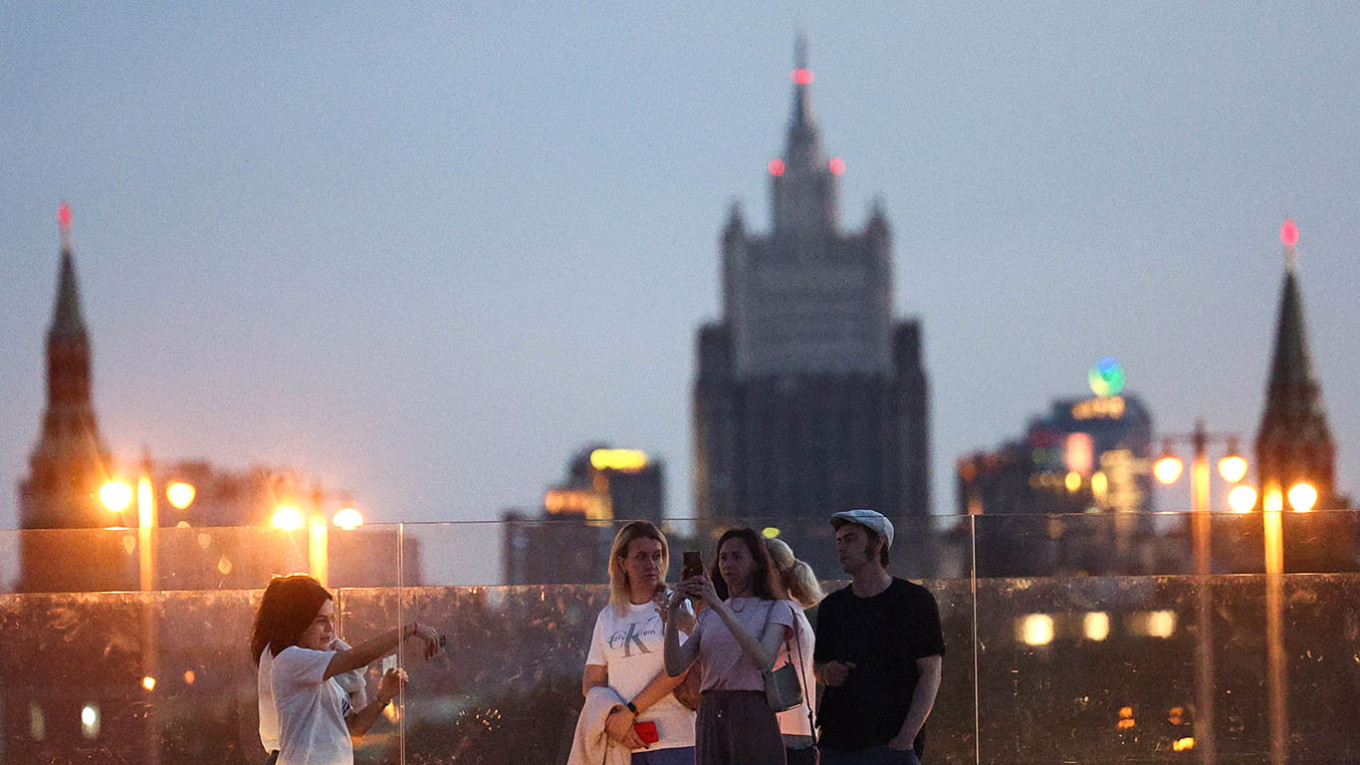Tourism from Western nations to Russia experienced a significant decline following the invasion of Ukraine in 2022. Restrictions on flights, banking limitations, and various logistical challenges, alongside heightened geopolitical tensions, have complicated travel, making it less attractive for many visitors from the West. Nevertheless, thousands of individuals from Europe and North America continue to visit Russia annually, and there is also an increase in tourists from Asia and the Middle East.
If you’re contemplating a trip, The Moscow Times has compiled a guide of essential information to consider beforehand.
The advisability of traveling to Russia greatly depends on whom you consult. Since the onset of the full-scale invasion, numerous Western governments have strongly discouraged their citizens from visiting Russia and have urged those currently in the country to leave promptly.
For instance, the U.S. State Department highlights several safety issues, such as “arbitrary enforcement of local laws” and “the chance of harassment or wrongful detention by Russian authorities,” in its travel guidance. Comparable warnings have been issued by nations including Canada, the UK, France, and Germany.
Conversely, countries like China, Brazil, and India have not issued similar advisories. Even nations generally perceived as having friendly relations with Russia, like Serbia and Hungary, recommend that their citizens exercise heightened caution while visiting. Their foreign ministries do not strictly advise against all travel to Russia but do warn against entering areas identified as having “high security risks,” likely alluding to regions close to the Ukrainian border that are frequently subjected to drone attacks.
If you are thinking about traveling to Russia, it is crucial to first review your government’s travel advisories so you can make an informed decision about whether the trip is appropriate for you. Moreover, while Russia is not predominantly a war zone, certain areas, particularly in the south and southwest, face regular drone and missile strikes that have resulted in casualties even far from conflict zones. The overall threat level in cities like Moscow and St. Petersburg is relatively low but does exist.
Visa regulations for entering Russia differ according to your nationality. The most reliable way to get accurate information is through your local Russian embassy or consulate, which can provide the latest details on how to apply for a visa.
Citizens from some countries, including numerous from the EU, can obtain a short-term electronic visa for tourism purposes. Others may not require a visa at all. For American citizens, the application process has largely remained the same, according to recent travelers who spoke with The Moscow Times. In some cases, processing times may even be shorter due to decreased demand for Russian visas in Western nations.
Currently, the most straightforward and commonly suggested route to Russia is by flying through countries like Turkey or the UAE, with further connections available to major cities from Moscow or St. Petersburg. As a result of airport closures since early 2022, most airports in southern Russia remain off-limits.
Traveling by land, for example, by bus from Estonia or Lithuania to the Kaliningrad region before flying to mainland Russia, is an option and can be more economical. However, this method also faces additional difficulties, such as more thorough security checks at the border and restrictions on taking euro cash into Russia.
Among Moscow’s airports, Sheremetyevo is generally regarded as more efficient for international travelers compared to Domodedovo. Pulkovo Airport in St. Petersburg is also highly recommended. Travelers mentioned to The Moscow Times that security checks at Sheremetyevo and Pulkovo are usually less rigorous than those at Domodedovo, where longer lines and more detailed questioning have been reported. Nevertheless, security procedures at Sheremetyevo can still take several hours.
Border officers may conduct seemingly random interviews. Some travelers report being questioned almost each time they cross the border, while others have never faced inquiries. Questions may cover the purpose of the visit, accommodation details, occupation, and any previous travel to Ukraine.
Border authorities also possess the power to request access to your mobile device. While only a few travelers have reported this occurrence, it is strongly recommended not to carry any sensitive information or content related to Ukraine on your phone. Although you can refuse access to your device, doing so may lead to denied entry into the country.
Since spring 2022, Visa and Mastercard cards issued outside of Russia are no longer operational within the country. However, UnionPay cards from Chinese banks remain usable. For short visits, the simplest and most trustworthy way to have money available in Russia is by bringing cash.
Travelers should keep in mind several important restrictions. The European Union has prohibited the transportation of euro banknotes into Russia from EU countries as part of sanctions imposed following the invasion of Ukraine. Therefore, if you are entering Russia from an EU member state, carrying euro cash across the border is not allowed. This restriction doesn’t apply if you’re arriving from non-EU countries like Turkey or the UAE, as Russia itself does not prohibit the import of euros. Regardless of the currency, travelers can bring in up to $10,000 (or equivalent) in cash without needing to declare it.
For those intending to stay longer, it is advisable to open a local bank account. Depositing your cash into a Russian account can facilitate everyday transactions as card and electronic payments are becoming increasingly common.
Exchanging foreign currency in major Russian cities is typically straightforward, with some exchange offices offering favorable rates, according to travelers’ insights shared with The Moscow Times. However, it’s essential to carry only clean, unmarked banknotes, as Russian banks and exchange offices often refuse old, stained, or torn bills.
Gaining access to mobile phone services in Russia has become markedly more challenging for foreigners. Starting from July 2025, new regulations require foreigners wishing to sign mobile contracts to register with the Unified Biometric System (UBS), a government-operated database that collects biometric information.
To register, foreigners must visit a Sberbank location to submit their biometrics, including a facial photograph and a voice sample. Additionally, they must obtain a SNILS (the Russian equivalent of a Social Security number), register on the Gosuslugi public services portal, and provide the IMEI number of their mobile device.
Acquiring a SNILS necessitates a visit to a Moi Dokumenti government services office (often referred to as a Multifunctional Center). After submitting the required documents and biometrics, and once the SNILS is processed—usually taking several days—foreigners can then go to a mobile service provider to get a SIM card and phone plan.
This cumbersome process may not be practical for short-term visitors. As an alternative, travelers can consider purchasing eSIMs from international providers such as eSIM.sm; however, there is a possibility that Russian authorities may impose restrictions on some of these services in the future. Another option is to see if your existing mobile carrier offers roaming services in Russia, although these can be costly. One Italian traveler informed The Moscow Times that his provider has recently offered 15GB of data and limited calling in Russia for 30 euros a month.
Western platforms like Airbnb and Booking.com are no longer operational in Russia. The country has developed its own alternatives for short-term accommodation bookings, with Ostrovok.ru and Sutochno.ru being the most prominent. Travelers can also make reservations directly via hotels, hostels, or other lodging types. Some hotels permit cash payments upon arrival.
As previously, if you are booked into a hotel, the personnel will manage your mandatory registration with the relevant authorities, and no additional steps are required. However, if you are staying at a private residence for several days, you will need to register yourself at the nearest Moi Dokumenti branch.
The Russian government has blocked numerous websites and online services over recent years, including Instagram and Facebook, rendering them inaccessible without a VPN. While many VPN services continue to operate in Russia, major providers have been restricted, making lesser-known VPNs often a more reliable choice. Nonetheless, the accessibility of VPN services fluctuates, so it’s wise to consult updated online resources before selecting one.
Travelers are advised to download and configure their VPN prior to arriving in Russia, as access to VPN-related websites may also be limited after entering the country.

